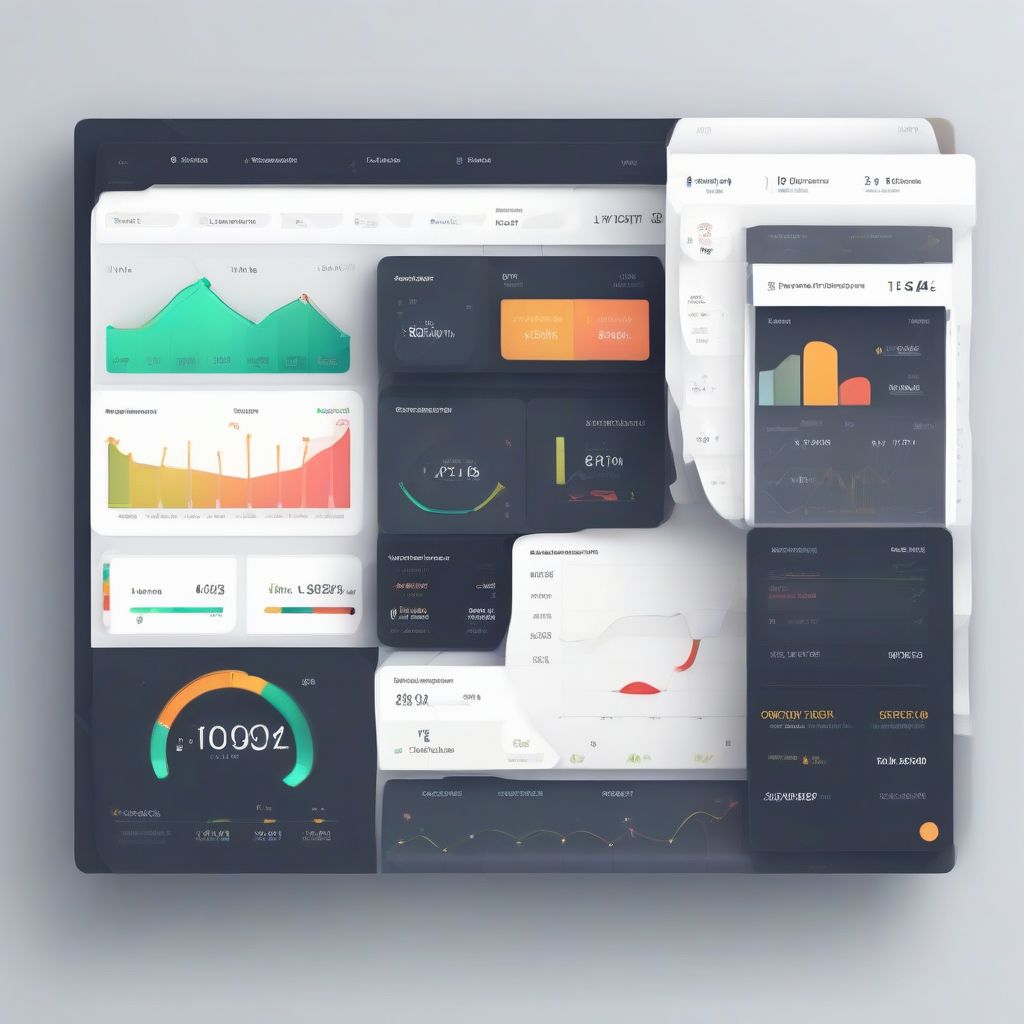In today’s dynamic real estate landscape, effective property management is crucial for maximizing returns and minimizing headaches. Whether you’re a seasoned investor with a sprawling portfolio or a landlord just starting out, keeping track of tenants, leases, maintenance requests, and finances can quickly become overwhelming. This is where real estate management software steps in as your invaluable partner.
What is Real Estate Management Software?
Real estate management software is a digital solution designed to simplify and automate the day-to-day operations of managing properties, tenants, and finances. Think of it as your all-in-one command center for everything related to your real estate investments.
Why Do You Need Real Estate Management Software?
Imagine effortlessly tracking rent payments, generating insightful financial reports with a click, and responding to maintenance requests promptly – all from a single platform. Real estate management software empowers you to:
- Save Time and Reduce Errors: Automate repetitive tasks like rent collection and lease renewals, minimizing manual work and the risk of human error.
- Improve Tenant Satisfaction: Streamline communication with tenants, respond to requests swiftly, and provide a convenient online portal for rent payments and maintenance requests.
- Maximize ROI: Gain real-time insights into your finances, track expenses accurately, and identify areas for cost savings and increased profitability.
- Make Informed Decisions: Generate comprehensive reports on property performance, tenant history, and market trends to support data-driven decision-making.
 Real Estate Dashboard
Real Estate Dashboard
Key Features of Real Estate Management Software
Navigating the world of real estate management software can feel daunting, given the array of options available. To help you choose the right solution for your needs, consider these essential features:
1. Accounting and Financial Management
- Rent Collection and Tracking: Automate rent reminders, accept online payments, and track outstanding balances seamlessly.
- Expense Management: Log, categorize, and monitor all property-related expenses for accurate financial reporting.
- Financial Reporting: Generate comprehensive financial reports, including income statements, profit and loss statements, and cash flow analyses.
2. Tenant Management
- Tenant Screening: Conduct background checks, credit checks, and employment verification to ensure reliable tenants.
- Lease Management: Create, store, and track lease agreements digitally, including renewal reminders and automatic rent adjustments.
- Communication Portal: Facilitate efficient communication with tenants through a secure online portal for messages, announcements, and document sharing.
3. Maintenance and Repairs
- Maintenance Request Management: Allow tenants to submit maintenance requests online and track their status from submission to resolution.
- Vendor Management: Maintain a database of trusted vendors and contractors, streamlining the process of scheduling and tracking repairs.
- Preventative Maintenance Scheduling: Set reminders for routine maintenance tasks to proactively address potential issues and extend the life of your assets.
4. Reporting and Analytics
- Property Performance Reports: Gain insights into vacancy rates, rental income, and other key performance indicators (KPIs) for each property.
- Tenant Reports: Track tenant payment history, lease renewals, and communication logs to manage tenant relationships effectively.
- Market Analysis Tools: Access data on rental trends, property values, and neighborhood demographics to make informed investment decisions.
Choosing the Right Real Estate Management Software: Factors to Consider
- Property Size and Type: The ideal software should cater to the specific requirements of your property portfolio, whether you manage single-family homes, multi-unit buildings, or commercial spaces.
- Budget: Software pricing varies widely, from affordable monthly subscriptions to enterprise-level solutions. Determine your budget and explore options that align with your financial constraints.
- Technical Expertise: Consider the ease of use and learning curve associated with the software. Some platforms offer intuitive interfaces, while others may require more technical proficiency.
- Integration Capabilities: Check if the software integrates with other tools you already use, such as accounting software, payment gateways, or marketing platforms.
The Future of Real Estate Management: Embracing Technology for Smarter Investments
The real estate industry is undergoing a digital transformation, and embracing technology is no longer optional—it’s essential for staying ahead of the curve. Real estate management software empowers you to:
- Leverage Data-Driven Insights: Make informed decisions based on real-time data and analytics, rather than relying on gut feelings.
- Enhance Operational Efficiency: Streamline workflows, automate tasks, and eliminate manual processes to free up time and resources.
- Improve Tenant Experience: Provide a modern and convenient experience for tenants, fostering satisfaction and long-term loyalty.
 Future of Real Estate
Future of Real Estate
Conclusion: Unlocking Real Estate Success with Smart Management
Investing in real estate management software is an investment in the long-term success of your property portfolio. By streamlining operations, improving financial control, and enhancing tenant relationships, you can focus on what truly matters: growing your investments strategically and maximizing your returns. As you embark on your search for the perfect software solution, remember to carefully assess your needs, explore different options, and choose a platform that aligns with your unique investment goals.